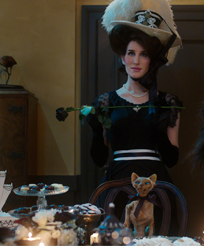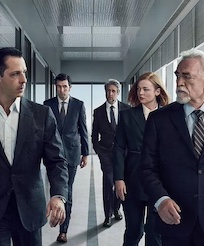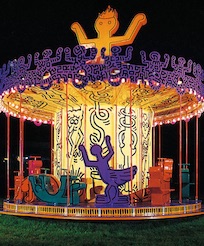Disclaimer: This article contains spoilers about Call Me By Your Name.
I finally saw Sufjan Stevens a few summers ago, at Justin Vernon’s first-ever Eaux Claires Festival, in the Wisconsin town of the same name. This was one of his first stops on the Carrie & Lowell tour; up until then, chances to see Stevens, who is notoriously guarded, were few and far between. The stage was set against the backdrop of an empty lake. It was freshly dusk, the lingering grip of daylight rendering the sky a diffuse gray. I had smoked too much pot, I think, to the point where I’d become hyper-conscious of everything at once.
I remember seeing him on stage in a sleeveless t-shirt and a down-turned baseball cap and remarking to myself how brawny he was: Sufjan was jacked! To this day, I can’t recall whether or not he had a backing band. Not that it matters. Watching his show felt less like being at a concert than having a front-row seat to the symphony inside his head—of which he is the conductor, and also every member.
One song in particular stands out in my memory: “Fourth of July,” off of Carrie & Lowell. It’s a somber tune, even by Sufjan’s standards, sung in whispery tones to a simple treble piano riff. The lyric that emerges in the chorus is quite bleak: “We’re all gonna die.” On the record, he repeats it into quiet oblivion. But in concert, the song contained a much greater build, the volume of his voice and the backing music rising with each utterance of the lyric. There was a transcendent moment when the meaning of the line turned—when through its sheer repetition it became not a dirge but an anthem, then a rallying cry, then a celebration. Yes, we’re all gonna die! And isn’t that grand?!
I was reminded of this shift—from mournful to triumphant—watching Luca Guadagnino’s resplendent film, Call Me By Your Name, for which Stevens wrote two original songs: “Mystery of Love,” which you may recognize from the trailer, and “Visions of Gideon,” which is put to great effect in the final scene. (“Futile Devices,” off of the Age of Adz, was also remixed for the movie.)
Like the novel upon which it was based, Call Me By Your Name takes place in a beautiful vacation home in northern Italy. The year is 1983. A 24-year-old American scholar, Oliver (Armie Hammer), is visiting for the summer, to work with the patriarch of the household, Mr. Perlman (Michael Stuhlbarg), a renowned professor of archeology. Mr. Perlman’s 17-year-old son, Elio (Timothée Chalamet), gives Oliver his room and shows him the ropes—takes him on bike rides to town, to parties with his friends, to the lake where he reads. At first, their relationship seems bristly. But eventually, Elio confesses his love for Oliver—and the two spend the remainder of the summer entwined around the vine of a great passion.
The story unravels from Elio’s point of view. As such, it’s not just a love story, but a first love story. Sumptuous, sun-dappled, full of lithe, bare-chested bodies, an omnipresent heat, verdant gardens, ripe fruit and cool pools of water, Guadagnino is unsubtle in his attempt to capture the sensory-overload of adolescent romance. While the film takes place in the 1980s, its tone, in its ecstatic portrayal of nature and welcome embrace of sentimentality, belongs more to that of 1780s romanticism. Make no mistake: despite the gay relationship at the center, this is an old-fashioned love story (which, coincidentally, may have the affect of making it quote-unquote “modern”).
Towards the end of the film, Oliver returns home. Elio is heartbroken. This, nor the relationship with Oliver, has gone unnoticed by Elio’s father. His subsequent speech to Elio, heartfelt and wise, lays bare the core of the movie, the pangs of first love: “Our hearts and our bodies are given to us only once. And before you know it, your heart’s worn out. And as for your body, there comes a point when no one looks at it, much less wants to come near it. Right now, there’s sorrow, pain. Don’t kill it, and with it the joy you’ve felt.” It’s better to have loved and lost than to have never loved at all, yes; and it is better to feel hurt than to feel nothing, if only because contained inside the cold hard shell of pain are embers of the emotions that make us feel most alive.
Luca Guadagnino seemed to recognize in Sufjan Stevens the perfect musical analogue to his film (so much so, in fact, that he reportedly wanted Stevens to narrate the film). Without being too on-the-nose, their working relationship here feels, akin to Elio and Oliver’s, meant to be—a meeting of souls. Stevens’s voice, to me, is the vocal equivalent of Renée Zellweger’s face: always on the verge of tears. His fragile falsetto is like the upper register our voices reach when pushed by the lump of emotion in our throats—whether by happiness or sadness or both. Unlike other singer-songwriters of his generation, he has never shied away from treacle. No other musician working today has the capacity to access the sublime within the sorrowful quite like Sufjan Stevens. “Casmir Pulaski Day,” is a melancholically hopeful ditty about a boy who loves a girl with bone cancer. “Chicago,” Stevens’ most popular song, is a dithyrambic love letter to a time and a place whose refrain is nonetheless about loss: all things go. “Fourth of July” is an anthem about dying.
In Call Me By Your Name, Stevens songs go a long way in terms of encapsulating the bittersweetness of first love—its breathtaking power and, all too often, its wicked ephemerality. A professed Christian, the songs—“Mystery of Love,” in particular—have a spiritual bent, exalting the feeling to the realm of the divine (“Oh will wonders ever cease? Blessed be the wonders of love...”). A remixed “Futile Devices,” written long before Stevens was commissioned for the other two songs, seems tailored to a moment in the film when Elio feels he has lost his hold on Oliver. It also expresses the deficit from which desire is borne: “But you are life I needed all along/ I think of you as my brother.” (As Jezebel's Bobby Finger, and others, have written, while Stevens has not made public his sexual orientation, his songs have often, fittingly, spoken to those who identify as gay or queer—“Futile Devices” especially so.)
Perhaps the most fruitful marriage of Stevens and Guadagnino’s work, however, comes in the final scene of the film. It’s the winter after the summer of their affair, and Oliver calls the Perlman house to inform Elio that he’s getting married. Disturbed by the call, Elio stares contemplatively into the fireplace. As the credits roll, we watch Elio's sadness, slowly, deliberately, evolve into something like satisfaction. All the while, “Visions of Gideon” is playing:
I have loved you for the last time
Is it a video? Is it a video?
I have touched you for the last time
Is it a video? Is it a video?
For the love, for laughter, I flew up to your arms
Is it a video? Is it a video?













